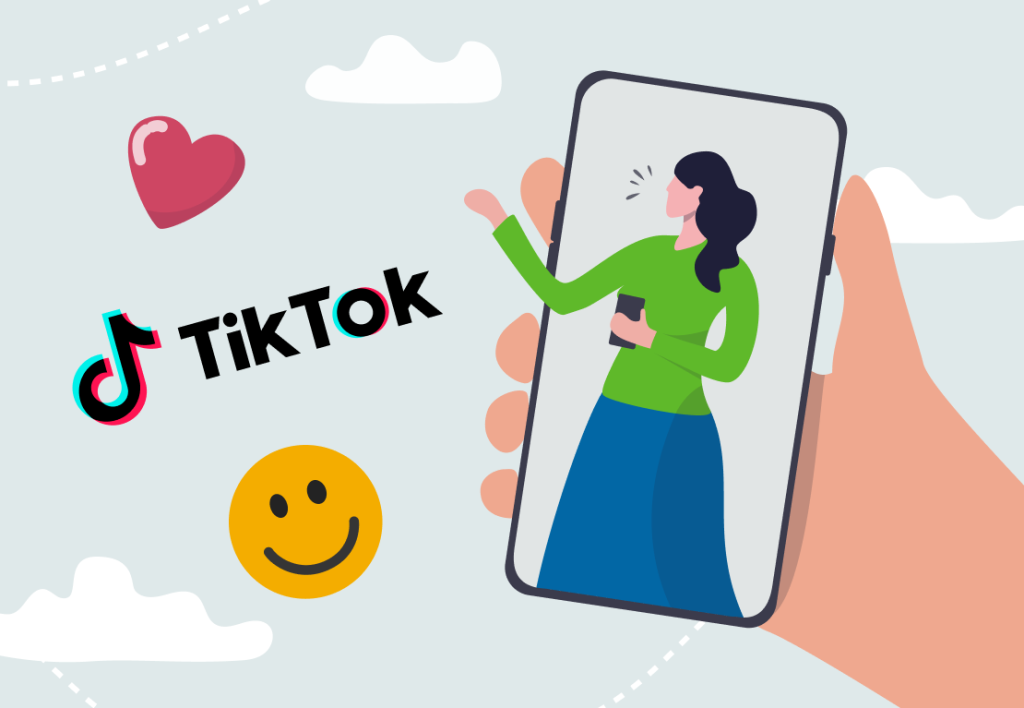5 TikTok work trends that actually make sense

TikTok has become one of the go-to places where people look for all kinds of things – from recipes to cat videos and mental health advice. What becomes trendy on TikTok eventually moves elsewhere. And that’s precisely what has happened to several work and career trends born on TikTok and now being all over media and career blogs.
In this article, we’ll dive into five TikTok work trends that moved beyond this social media platform into our work lives due to actually making a lot of sense.
Want to get the most out of your time?
Try DeskTime for free!
Try free for 14 days · No credit card required.
By signing up, you agree to our terms and privacy policy.

Quiet quitting – TikTok work trend that (really) took the spotlight

Quiet quitting has become a common term within the world of work, thanks to TikTok. This TikTok work trend hit the global spotlight about a year ago and became a hot topic for everyone discussing work and career-related matters.
The essence of the trend
For those who haven’t heard of quiet quitting – contrary to what it may seem, it isn’t quietly quitting your job. Instead, it means dialing back at work and doing what your job description encompasses but not going the extra mile. Not even an extra foot.
A quiet quitter shows up for work and does everything that has to be done but stays strictly within one’s job requirements. Additional tasks, checking email outside work hours, and so – that’s a big no for a quiet quitter.
The origins
It’s commonly believed that the quiet quitting trend saw daylight in 2022, thanks to an American TikTokker, Zaid Khan, who posted this video on TikTok. The video went viral, and soon everyone chanted the “work is not your life” mantra like it’s their mission.
However, it has turned out that the quiet quitting trend was born in China back in 2021. The tang ping trend (quiet quitting equivalent) jump-started among young workers who were rebelling against the extremely long work hours and overall unhealthy work environment in the country.
Why does this TikTok work trend make sense?
On one side, quiet quitting puts a healthy work-life balance on the pedestal and declines the hustling culture. Of course, sometimes the workload is enormous, and your boss may ask you to take on additional tasks to keep the boat floating. But it shouldn’t be viewed as normal, and that’s what quiet quitting kind of fights.
I say kind of because there’s another side of this coin. Many people become quiet quitters because of not feeling valued at work, lacking work motivation and fulfillment, or not caring about their jobs at all. Being stuck in a job that you don’t like is not only unpleasant, it can harm your mental well-being in the long run. Hence, if you’ve been quiet quitting for some time now, think – maybe some change could make you a happier person.
Bare minimum Mondays

One may say it’s stereotypical to hate Mondays, but I really do not like them – it’s the first day after a weekend. What’s likable about that? Hence, the next TikTok work trend we’ll look into is called bare minimum Mondays.
The essence of the trend
The bare minimum Mondays trend encourages workers to do the very bare minimum of tasks on Mondays to lower the stress levels and anxiety about a new work week that has just arrived. Besides, it’s been advocated as a suitable method for beating the infamous Sunday Scaries – feeling anxious on Sunday evenings about the new work week approaching. Plus, the bare minimum Mondays approach takes off some of the pressure to be amazingly productive right away.
The origins
The bare minimum Mondays TikTok work trend went viral thanks to Marisa Jo Mayes, a startup founder and digital creator. Her anxiety, which usually hit its highest on Sunday evenings and Monday mornings, became unbearable, and she decided to allow herself to do the very minimum of workload on Mondays. And this decision did the trick. Taking it super slow on Mondays helped Marisa ease her anxiety and feel more in control of her time and energy at work.
Why does this TikTok work trend make sense?
Monday is hard for everyone. And a daunting list of things that must be done and numerous meetings that must be attended doesn’t make it any easier. Hence, bare minimum Mondays make sense from one’s sanity point of view, allowing you to ease into the workweek rather than panicking right as your alarm goes off.
However, it’s important to note that bare minimum Mondays may not be possible for everyone – especially those working corporate jobs. The inventor of this TikTok work trend, Mayes, also admits that it works for her due to being self-employed, so she’s the one in charge of her work hours.

Want to prevent overworking?
Prioritize and set healthy boundaries!
Boreout

Feeling chronically bored at work? You may be experiencing a boreout – a sibling of burnout and another TikTok work trend that makes sense.
The essence of the trend
At its very core, boreout means feeling as though work has become so uninteresting that it lacks any sense of purpose. Someone experiencing boreout doesn’t see any value in their work tasks. While boreout’s cousin, burnout, seems way more severe at first glance, boreout can also have a damaging impact on one’s mental health.
Don’t get this wrong – it’s completely normal to feel bored at work occasionally. It’s work, not a trip to Disneyland, after all. But if you feel bored daily and nothing excites you concerning your job, you may be experiencing a boreout.
The origins
Boreout and #boredatwork have grown into a GenZers thing on TikTok – the hashtag has more than 475M views on the platform. Some use it to describe the shattered expectations for an exciting working life and how it has turned out to be boring. Other GenZ workers, currently in entry positions, lack tasks at work and constantly feel bored, which has caused them to join the boreout movement.
Why does this TikTok work trend make sense?
Even though GenZ employees arrived at the job party not that long ago, they’ve already spent enough time here to draw conclusions. Being understimulated at work is just as harmful as dealing with excessive work. Boreout creates negative feelings and anxiety and can lead employees toward depression. The most significant difference between burnout and boreout is that people usually don’t write LinkedIn posts and create online courses about the latter. And yet it’s there.
Act your wage

This TikTok work trend draws similarities to the quiet quitting movement. However, there is a fundamental difference – while quiet quitting accepts doing the bare minimum and even a bit of slacking at work, the act your wage trend is strictly about doing what you’re paid for.
The essence of the trend
Acting your wage is merely about setting boundaries in work and making your efforts directly match the pay you’re receiving. You work as you’re paid – no overtime and no working on weekends.
It does sound similar to quiet quitting, and there is undoubtedly a resemblance. But what catches my eye is that when people talk about quiet quitting, the job is mostly not a very loved one. However, in the case of acting your wage, a person can love their job but still choose not to do more than they’re paid. TikTokers sometimes consider it a more positive version of the quiet quitting work trend.
The origins
This TikTok work trend went viral around the same time quiet quitting did, only the latter had a more extensive resonance, making act your wage the sort of alternative TikTok trend. For example, Business Insider gave its headline to the act your wage a few months after quiet quitting had stormed the stage. But it does look like the act your wage trend went viral in response to the quiet quitting phenomenon.
Why does this TikTok work trend make sense?
The act your wage TikTok work trend tries to normalize doing your job. It doesn’t mean sloppy work, laziness, or disregarding your duties. It just tries to show that it’s not okay to expect workers to do more than what their job description requires without additional pay.
Employees going after a raise or climbing a career ladder may be willing to do extra work – to show they can, and they’re eager to. But not everyone has career aspirations, and it’s okay to come to work, do what’s required, and go home at a reasonable hour.
The freshest one – the snail-girl era

The snail-girl era is one of the latest trends on TikTok, boosted by GenZ employees, who choose work-life balance over hustle culture. Note: While the title of this TikTok work trend is gender-specific, it doesn’t mean that it applies to women only.
The essence of the trend
Girl boss is dead; long live the snail-girl – at least that’s what TikTok says, and career experts seem to agree. As you may guess, the snail-girl era trend is about slowing down and embracing a more peaceful and balanced lifestyle instead of striving for professional success at any cost. Snail girls (or snail people, if I may) prioritize their well-being and self-care and “choose to be happy rather than busy”.
The origins
The snail-girl era term was apparently invented by an Australian businesswoman, Sienna Ludbey. In the summer of 2023, Sienna wrote an article explaining the term and her reasoning for adopting it. She’s a business owner, and her hectic lifestyle made her realize the girl boss was no longer her beat. Hence, the first-ever (ish) snail-girl saw the world and soon enough made it to TikTok work trends’ list as well.
Why does this TikTok trend make sense?
There’s nothing wrong with being ambitious, going for a raise, or striving to make it big in business. But it’s also not for everyone – despite what we’ve been taught to believe. Realizing that you enjoy living at a slower pace and are unwilling to compromise your well-being to succeed seems healthy to me (and to well-being experts, too). The snail-girl era, however, doesn’t cancel achievements or career growth – it simply puts one’s sanity first.
TikTok trends are redefining how we view work
The world of work is ever-evolving, and TikTok has proven to be a surprisingly insightful platform for identifying trends that make sense in this dynamic landscape. From embracing bare minimum Mondays and flexible schedules to prioritizing mental health and self-care, these trends have a genuine impact on how we approach our professional lives.
Without a doubt, no trend ever works for everyone. Some will forever frown upon the quiet quitting buzz, while others will embrace the act your wage trend to the fullest and will feel the happiest ever by doing so. The crucial thing is to take TikTok trends – whether work-related or anything else – with a grain of salt.
Did you find this article useful? Give it a clap!
Psst! You can clap more than once if you really loved it 🙂